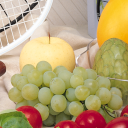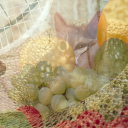|
Some checks failed
Continuous integration / Tests (push) Blocked by required conditions
Continuous integration / Tests (windows-latest) (push) Waiting to run
Continuous integration / Check clippy, formatting, and documentation (push) Failing after 20s
Continuous integration / Tests (ubuntu-latest) (push) Failing after 22s
Continuous integration / Check fuzzers (push) Failing after 18s
Continuous integration / Check mininum Rust version (push) Failing after 20s
|
||
|---|---|---|
| .. | ||
| build | ||
| src | ||
| .cargo-checksum.json | ||
| Cargo.toml | ||
| LICENSE-APACHE | ||
| LICENSE-MIT | ||
| README.md | ||
Palette
A color management and conversion library that focuses on maintaining correctness, flexibility and ease of use. It makes use of the type system to prevent mistakes, support a wide range of color spaces (including user defined variants) and offer different ways of integrating with other libraries.
The announcement post for 0.7.6.
Feature Summary
- Type system representations of color spaces, including RGB, HSL, HSV, HWB, L*a*b*, L*C*h°, XYZ and xyY.
- Copy free conversion to and from color buffers allows simple integration with other crates and systems.
- Color operations implemented as traits, such as arithmetic, lighten/darken, hue shifting, mixing/interpolating, and SVG blend functions.
- Color spaces can be customized, using type parameters, to support different levels of precision, linearity, white points, RGB standards, etc.
- Supports
#[no_std]. - Optional
serde,rand, andbytemuckintegration.
Minimum Supported Rust Version (MSRV)
This version of Palette has been automatically tested with Rust version 1.60.0 and the stable, beta, and nightly channels. Future versions of the library may advance the minimum supported version to make use of new language features, but this will normally be considered a breaking change. Exceptions may be made for security patches, dependencies advancing their MSRV in minor or patch releases, and similar changes.
Getting Started
Add the following lines to your Cargo.toml file:
[dependencies]
palette = "0.7.6"
or these lines if you want to opt out of std:
[dependencies.palette]
version = "0.7.6"
default-features = false
features = ["libm"] # Uses libm instead of std for floating point math
Cargo Features
These features are enabled by default:
"named"- Enables color constants, located in thenamedmodule."named_from_str"- Enablesnamed::from_str, which maps name strings to colors."std"- Enables use of the standard library. Also enables"alloc"."alloc"- Enables implementations for allocating types, such asVecorBox."approx"- Enables approximate comparison usingapprox.
These features are disabled by default:
"serializing"- Enables color serializing and deserializing usingserde."random"- Enables generating random colors usingrand."libm"- Uses thelibmfloating point math library (for when thestdfeature is disabled)."bytemuck"- Enables casting between plain data types usingbytemuck."wide"- Enables support for using SIMD types fromwide."find-crate"- Enables derives to find thepalettecrate when it's renamed inCargo.toml.
Using palette in an embedded environment
Palette supports #![no_std] environments by disabling the "std" feature. It uses libm, via the "libm" feature, to provide the floating-point operations that are typically in std, and the "alloc" feature to provide features that use allocating types. However, serializing with serde is not available without the standard library.
Examples
These are examples of some of the features listed in the feature summary.
Converting
It's possible to convert from one color space to another with the FromColor and IntoColor traits. They are similar to From and Into, but tailored for colors:
use palette::{FromColor, Hsl, IntoColor, Lch, Srgb};
let my_rgb = Srgb::new(0.8, 0.3, 0.3);
let mut my_lch = Lch::from_color(my_rgb);
my_lch.hue += 180.0;
let mut my_hsl: Hsl = my_lch.into_color();
my_hsl.lightness *= 0.6;
let my_new_rgb = Srgb::from_color(my_hsl);
This image shows the starting color and the results of the two changes:
Most of the common color spaces are already implemented in Palette, but some situations may require something more customized. The conversion traits make it possible to integrate custom color types into the system. For example, this can be used for adding new color spaces or making a simpler user-facing API.
A longer and more advanced example that shows how to implement the conversion traits for a custom color type can be found further down.
Pixels And Buffers
When working with image or pixel buffers, or any color type that can be converted to a slice of components (ex. &[u8]), the cast module provides traits and functions for turning them into slices of Palette colors without cloning the whole buffer:
use palette::{cast::ComponentsAsMut, Srgb};
// The input to this function could be data from an image file or
// maybe a texture in a game.
fn swap_red_and_blue(my_rgb_image: &mut [u8]) {
// Convert `my_rgb_image` into `&mut [Srgb<u8>]` without copying.
let my_rgb_image: &mut [Srgb<u8>] = my_rgb_image.components_as_mut();
for color in my_rgb_image {
std::mem::swap(&mut color.red, &mut color.blue);
}
}
| Before | After |
|---|---|
 |
It's also possible to create a single color from a slice or array. Let's say we are using something that implements AsMut<[u8; 3]>:
use palette::Srgb;
fn swap_red_and_blue(mut my_rgb: impl AsMut<[u8; 3]>) {
let my_rgb: &mut Srgb<u8> = my_rgb.as_mut().into();
std::mem::swap(&mut my_rgb.red, &mut my_rgb.blue);
}
This makes it possible to use Palette with any other crate that can convert their color types to slices and arrays, with minimal glue code and little to no overhead. It's also possible to go the opposite direction and convert Palette types to slices and arrays.
Color Operations
Palette comes with a number of color operations built in, such as saturate/desaturate, hue shift, etc., in the form of operator traits. That means it's possible to write generic functions that perform these operation on any color space that supports them. The output will vary depending on the color space's characteristics.
use palette::{Hsl, Hsv, Lighten, Mix, ShiftHue};
fn transform_color<C>(color: C, amount: f32) -> C
where
C: ShiftHue<Scalar = f32> + Lighten<Scalar = f32> + Mix<Scalar = f32> + Copy,
{
let new_color = color.shift_hue(170.0).lighten(1.0);
// Interpolate between the old and new color.
color.mix(new_color, amount)
}
let new_hsl = transform_color(Hsl::new_srgb(0.00, 0.70, 0.20), 0.8);
let new_hsv = transform_color(Hsv::new_srgb(0.00, 0.82, 0.34), 0.8);
This image shows the transition from the color to new_color in HSL and HSV:
In addition to the operator traits, the SVG blend and composition functions have also been implemented.
use palette::{
blend::Compose,
cast::{ComponentsAs, ComponentsAsMut},
Srgb, WithAlpha,
};
// The input to this function could be data from image files.
fn alpha_blend_images(image1: &mut [u8], image2: &[u8]) {
// Convert the images into `&mut [Srgb<u8>]` and `&[Srgb<u8>]` without copying.
let image1: &mut [Srgb<u8>] = image1.components_as_mut();
let image2: &[Srgb<u8>] = image2.components_as();
for (color1, color2) in image1.iter_mut().zip(image2) {
// Convert the colors to linear floating point format and give them transparency values.
let color1_alpha = color1.into_linear().opaque();
let color2_alpha = color2.into_linear().with_alpha(0.5);
// Alpha blend `color2_alpha` over `color1_alpha`.
let blended = color2_alpha.over(color1_alpha);
// Convert the color part back to `Srgb<u8>` and overwrite the value in image1.
*color1 = blended.color.into_encoding();
}
}
| Image 1 | Image 2 | Result |
|---|---|---|
 |
 |
 |
There's also the option to explicitly convert to and from premultiplied alpha, to avoid converting back and forth more than necessary, using the PreAlpha type.
Gradients
Most color types are directly compatible with gradient and interpolation crates, such as enterpolation:
use enterpolation::{linear::ConstEquidistantLinear, Curve};
use palette::LinSrgb;
let gradient = ConstEquidistantLinear::<f32, _, 3>::equidistant_unchecked([
LinSrgb::new(0.00, 0.05, 0.20),
LinSrgb::new(0.70, 0.10, 0.20),
LinSrgb::new(0.95, 0.90, 0.30),
]);
let taken_colors: Vec<_> = gradient.take(10).collect();
Here's the gradient as both its continuous form and as the 10 colors from .take(10):
Customizing Color Spaces
The built-in color spaces have been made customizable to account for as much variation as possible. The more common variants have been exposed as type aliases (like Srgb, Srgba and LinSrgb from above), but it's entirely possible to make custom compositions, including with entirely new parameters. For example, making up your own RGB standard:
use palette::{
encoding,
white_point,
rgb::Rgb,
chromatic_adaptation::AdaptFrom,
Srgb
};
// RgbStandard and RgbSpace are implemented for 2 and 3 element tuples,
// allowing mixing and matching of existing types. In this case we are
// combining sRGB primaries, the CIE equal energy white point and the
// sRGB transfer function (a.k.a. encoding or gamma).
type EqualEnergyStandard = (encoding::Srgb, white_point::E, encoding::Srgb);
type EqualEnergySrgb<T> = Rgb<EqualEnergyStandard, T>;
let ee_rgb = EqualEnergySrgb::new(1.0, 0.5, 0.3);
// We need to use chromatic adaptation when going between white points.
let srgb = Srgb::adapt_from(ee_rgb);
It's also possible to implement the traits for a custom type, for when the built-in options are not enough.
Converting Custom Color Types
The following example shows how it's possible for Palette users to convert from and into a custom made Color type. It's not exactly a one-liner, but it can still save a lot of repetitive manual work.
use palette::{
convert::FromColorUnclamped,
encoding,
rgb::Rgb,
IntoColor, WithAlpha, Clamp, Srgb, Lcha
};
// This implements conversion to and from all Palette colors.
#[derive(FromColorUnclamped, WithAlpha)]
// We have to tell Palette that we will take care of converting to/from sRGB.
#[palette(skip_derives(Rgb), rgb_standard = "encoding::Srgb")]
struct Color {
r: f32,
g: f32,
b: f32,
// Let Palette know this is our alpha channel.
#[palette(alpha)]
a: f32,
}
// There's no blanket implementation for Self -> Self, unlike the From trait.
// This is to better allow cases like Self<A> -> Self<B>.
impl FromColorUnclamped<Color> for Color {
fn from_color_unclamped(color: Color) -> Color {
color
}
}
// Convert from any kind of f32 sRGB.
impl<S> FromColorUnclamped<Rgb<S, f32>> for Color
where
Srgb: FromColorUnclamped<Rgb<S, f32>>,
{
fn from_color_unclamped(color: Rgb<S, f32>) -> Color {
let srgb = Srgb::from_color_unclamped(color);
Color { r: srgb.red, g: srgb.green, b: srgb.blue, a: 1.0 }
}
}
// Convert into any kind of f32 sRGB.
impl<S> FromColorUnclamped<Color> for Rgb<S, f32>
where
Rgb<S, f32>: FromColorUnclamped<Srgb>,
{
fn from_color_unclamped(color: Color) -> Self {
let srgb = Srgb::new(color.r, color.g, color.b);
Self::from_color_unclamped(srgb)
}
}
// Add the required clamping.
impl Clamp for Color {
fn clamp(self) -> Self {
Color {
r: self.r.min(1.0).max(0.0),
g: self.g.min(1.0).max(0.0),
b: self.b.min(1.0).max(0.0),
a: self.a.min(1.0).max(0.0),
}
}
}
// This function uses only our `Color`, but Palette users can convert to it.
fn do_something(color: Color) {
// ...
}
do_something(Color { r: 1.0, g: 0.0, b: 1.0, a: 0.5 });
do_something(Lcha::new(60.0, 116.0, 328.0, 0.5).into_color());
// This function has the conversion built in and takes any compatible
// color type as input.
fn generic_do_something(color: impl IntoColor<Color>) {
let color = color.into_color();
// ...
}
generic_do_something(Color { r: 1.0, g: 0.0, b: 1.0, a: 0.5 });
generic_do_something(Lcha::new(60.0, 116.0, 328.0, 0.5));
License
Licensed under either of
- Apache License, Version 2.0, (LICENSE-APACHE or http://www.apache.org/licenses/LICENSE-2.0)
- MIT license (LICENSE-MIT or http://opensource.org/licenses/MIT)
at your option.


